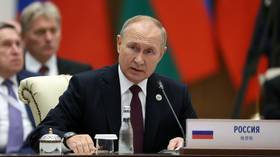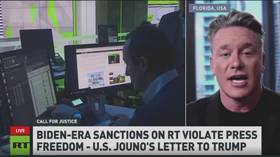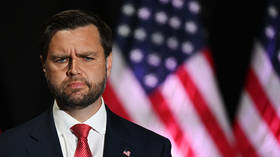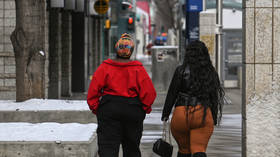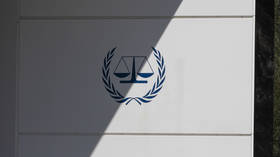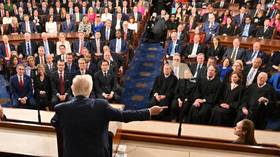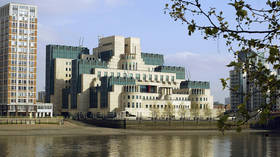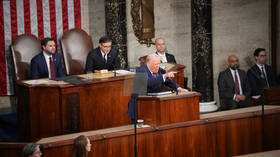Zelensky wants to exchange Ukrainian soldiers for fertilizer
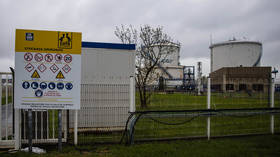
Ukrainian President Vladimir Zelensky will allow Russia to resume sending ammonia exports through his country, thus easing a global fertilizer shortage, only if Moscow releases Ukrainian prisoners of war, he told Reuters on Friday.
“I am against supplying ammonia from the Russian Federation through our territory. I would only do it in exchange for our prisoners,” Zelensky told the outlet. “This is what I offered the UN.”
The Kremlin quickly dismissed the offer. “Are people and ammonia the same thing?” spokesman Dmitry Peskov responded, as reported by the news agency TASS.
While Zelensky has claimed Ukraine took hundreds of Russian troops as prisoners during its recent counter-offensive in Kharkov, he has acknowledged Russia holds more Ukrainian POWs.
The UN had suggested Russian fertilizer producer Uralchem pump ammonia gas by pipeline to the Ukrainian border, where it could be purchased by Trammo, a US-based commodities trader.
The pipeline can pump as many as 2.5 million tons of ammonia per year from the Volga region to the port of Yuzhny on the Black Sea. However, the port has been closed since the start of Russia’s military offensive in February.
Ammonia is a vital ingredient in nitrate fertilizer, and a shortage in supply threatens to compound the global food crisis, itself already exacerbated by the conflict as much of the world’s wheat comes from Ukraine and Russia.
As many as 70% of European ammonia plants have reduced or halted production in recent months due to record-high energy prices, according to the Russian fertilizer industry.
Russia, Ukraine and Turkey signed a UN-brokered deal in July to resume grain exports from Ukraine’s Black Sea ports to alleviate the shortage. However, Russia’s representative to the UN, Vassily Nebenzia, recently blamed Western sanctions for holding up shipments of both grain and fertilizer.
He accused EU officials of hypocrisy for blocking Russian shipments to Africa, Asia and Latin America while allowing the critical resources to reach the bloc’s own shores. Of the 136 ships that have left Ukrainian ports carrying grain, just six went to the poorest countries suffering food crises.
